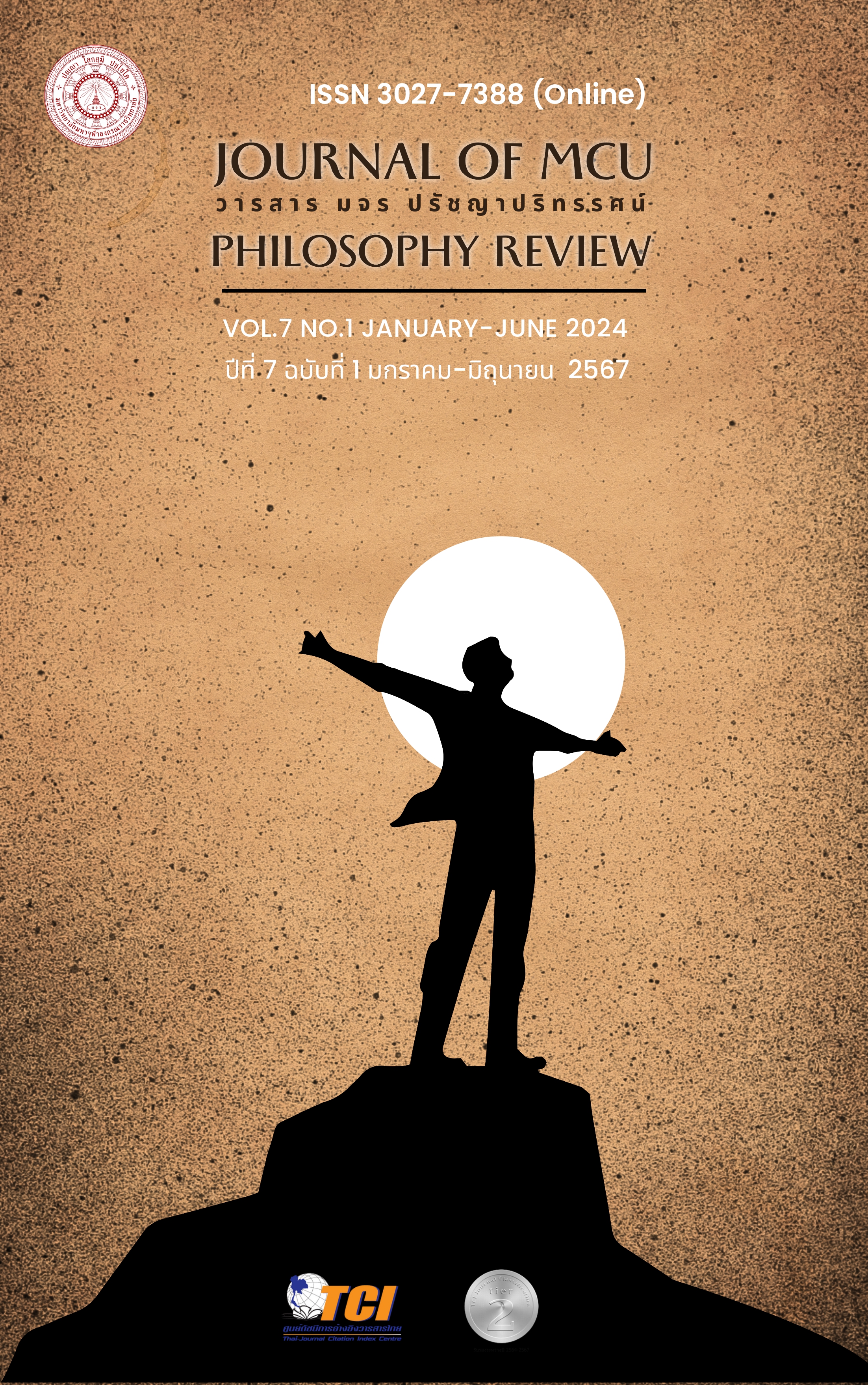The Science of Life Forecasting in Theravada Buddhism: an Analysis of Star Power and Karma Law
Main Article Content
Abstract
This article was aimed to study the concept of forecasting and to analyze the power of the stars and the law of karma. It was found that the Buddhist philosophy never recorded the birth of the cosmos but is destructions by fire, water and wind but mostly by fire. The Theravadan Cosmos was centered by Phra Sumeru Mountain having suns and moons circled around, having 4 subcontinents as its satellites, etc. The Cosmos was subject to the rules of Tilakknana, too. As of Astrology in the Theravada was counted as the exit of the belief and the alleviations of emotion and mind for human over thousands of years even before the Buddhist era. Though it may contradict the Buddhist doctrines which offered to belief in the Kamma scripts and self-reliance; His Lord prohibited monks and novices to study and to raise one’s life in animalist subjects. Dissents were subjected to the rule’s ecclesiastical offence However, His Lord permitted to learn lunar calendar to count the date of Pãtimokkha practices and allowed the forest monks to learn constellation subjects. The astrological influences over the Thai societies because many of them were monetarist and materialist-oriented rather than human values, adherence to luck and fate, and fate riskers, shortage of disciplines, immoderate in life, life rivalry and western-oriented. As such, they prioritized astrology as their exits and as their mind alleviation when they failed what they want.
Article Details

This work is licensed under a Creative Commons Attribution-NonCommercial-NoDerivatives 4.0 International License.
บทความที่ได้รับการตีพิมพ์เป็นลิขสิทธิ์ของวารสาร มจร ปรัชญาปริทรรศน์
ข้อความในบทความที่ได้รับการตีพิมพ์ในวารสาร ถือเป็นความรับผิดชอบของผู้เขียนบทความ และข้อคิดเห็นนั้นไม่ถือว่าเป็นทัศนะและความรับผิดชอบของกองบรรณาธิการวารสาร มจร ปรัชญาปริทรรศน์
References
จำเนียร ทรงฤกษ์. (2542). ชีวประวัติพุทธสาวก. ราชบุรี: สำนักพิมพ์ธรรมสภา.
เทพย์ สาริกบุตร. (2511). โหราศาสตร์ปริทัศน์ ภาค 1. กรุงเทพมหานคร: เกษมบรรณกิจ.
ประพันธ์ ศุภษร และกฤติกาวลัย หิรัญสิ. (2563). พระพุทธศาสนากับโหราศาสตร์ :การพึ่งพาและแนวการปฏิบัติของคนไทยในยุค 4.0. วารสารมหาจุฬาวิชาการ มจร. 7(3). พฤศจิกายน: 212-226.
พระครูใบฎีกาเฉลิมพล อริยวํโส (2563). โหราศาสตร์ตามแนวพุทธ. วารสารบัณฑิตศึกษามหาจุฬาขอนแก่น. 7(1). มีนาคม: 63-77.
พระพรหมคุณาภรณ์ (ป.อ. ปยุตฺโต). (2556). พจนานุกรมพุทธศาสตร์ ฉบับประมวลธรรม : นิยาม 5. พิมพ์ครั้งที่ 25. กรุงเทพมหานคร: สำนักพิมพ์ผลิธัมม์.
พระพรหมคุณาภรณ์ (ป.อ. ปยุตฺโต). (2555). พุทธธรรม ฉบับปรับขยาย. พิมพ์ครั้งที่ 33.กรุงเทพมหานคร:(สำนักพิมพ์เพ็ทแอนด์-โฮม จำกัด.
พระพรหมคุณาภรณ์ (ป.อ. ปยุตฺโต).. (2554). พจนานุกรมพุทธศาสน์ ฉบับประมวลศัพท์. พิมพ์ครั้งที่ 16. กรุงเทพมหานคร: สหธรรมิก.
พระมหายงยุทธ ธีรธมฺโม (พลมั่น). (2556). ศึกษาวิเคราะห์รูปแบบการประยุกต์ใช้แนวคิดเรื่องดาราศาสตร์เพื่อพัฒนาคุณภาพชีวิตตามหลักพระพุทธศาสนา. ดุษฎีนิพนธ์พุทธศาสตรดุษฎีบัณฑิต พระพุทธศาสนา. บัณฑิตวิทยาลัย:มหาวิทยาลัยมหาจุฬาลงกรณราชวิทยาลัย.
มหาจุฬาลงกรณราชวิทยาลัย. (2539). พระไตรปิฎกภาษาไทย ฉบับมหาจุฬาลงกรณราชวิทยาลัย. กรุงเทพมหานคร: โรงพิมพ์มหาจุฬาลงกรณราชวิทยาลัย.
ยอดธง ทับทิวไม้. (2537). โหราศาสตร์ เศรษฐกิจและการเมือง. กรุงเทพมหานคร: สำนักพิมพ์เดลฟี่.
ราชบัณฑิตยสถาน. (2546). พจนานุกรม ฉบับราชบัณฑิตยสถาน. พ.ศ. 2554. กรุงเทพมหานคร: ราชบัณฑิต.
สถิต ภาคมฤค และคณะ. (2560). คุณค่าทางวัฒนธรรมของโหราศาสตร์ชาติพันธุ์ในแอ่งสกลนคร. วารสารรมยสาร. 15(2): 64-74.
สิงห์โต สุริยาอารักษ์. (2525). โหราศาสตร์ไทยชั้นสูงว่าด้วยการพยากรณ์พื้นดวงชาตากำเนิด. กรุงเทพมหานค : เกษมบรรณกิจ.


